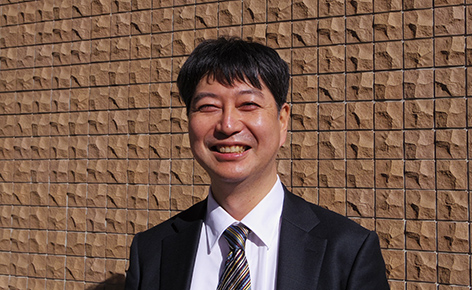OrganizationDirector’s Note


Thank you for visiting the website of the Research Institute for Languages and Cultures of Asia and Africa.
I am Nobuaki Kondo. I was installed as Director of the Institute on April 1, 2023.
I specialize in Iranian history. In recent years, I am also engaged in research into the history and literature of the Persianate world and pre-modern state systems in the Islamic world. I would like not only to globally share my research results but also to return them to society in accessible ways while conducting joint research with researchers in various fields through several projects.

The Research Institute for Languages and Cultures of Asia and Africa, also known as ILCAA, was founded in 1964 as the first national inter-university institution in humanities and social sciences in Japan. We have been engaged in research on Asia and Africa in the three fields of linguistics, anthropology, and history foralmost 60 years. We have also worked with researchers both within Japan and abroad, especially with joint researchers and visiting researchers from abroad.
The understanding of Asia and Africa has greatly progressed compared with when the institute was founded. Nevertheless, the progress of globalization makes the most dramatic changes in languages, cultures, and history of Asia and Africa that has ever occurred. The trends in Asia and Africa now exert greater influence on other regions of the world. Furthermore, the disciplines of humanities and social sciences are entering a period of revolutionary change following the advance of digitization in society. In these circumstances, ILCAA established TUFS Field Science Commons (TUFiSCo) in October 2022 as a university-wide research organization and advances cooperative activities with internal and external researchers to become a pioneer of new research.
As the globalization progresses with destructive force, it is certainly becoming even more important for us to focus on the state of various languages and cultures of people in Asia and Africa and to accumulate fundamental research. The institute will further lay emphasis on “joint research projects” conducted by our research staffs with researchers both within and outside Japan and show our research outcomes to the public through various large-scale projects.
As “International Research Center for Languages and Cultures of Asia and Africa,” ILCAA will continue to develop joint research with the wide-ranging cooperation of researchers within Japan and abroad. We will be grateful for your guidance and support as we will share our world-class research outcomes with the academic community and the public at large.
April 1, 2025
Nobuaki KONDO
The Director, Research Institute for Languages and Cultures of Asia and Africa (ILCAA)
1961
The Science Council of Japan issued a recommendation to establish an inter-university research institution for the study of the languages and cultures of Asia and Africa.
1964
ILCAA was established as an affiliate of the Tokyo University of Foreign Studies, and as the first institution to be designated as an Inter-University Institution in humanities and social sciences in Japan.
1967
Programme for Extensive-Period Field Research started.
1974
Intensive Language Course started in full swing.
1978
The introduction of mainframe computer.
1983
The office of the Overseas Scientific Research Coordination Team was established.
1991
Integrated sixteen small sections into four major sections.
1992
Participation in doctoral program of the Graduate School of Area and Culture Studies, TUFS by some staff.
1995
Designated as one of the Centers of Excellence (COE) by the Japanese Ministry of Education.
1996
The first international symposium, ‘Human Flow and Creation of New Cultures in Southeast Asia’ as a COE was held.
1997
The Information Resources Center (IRC) was established.
2001
Grant-in-Aid for COE Research, ‘Grammatological Informatics based on Corpora of Asian Scripts (GICAS)’ started. (-2005)
2002
Relocated from old Nishigahara campus to current Fuchu campus.
Grant-in-Aid for Scientific Research on Priority Areas, ‘Distribution and Sharing of Resources in Symbolic and Ecological Systems: Integrative Model-building in Anthropology’ started. (-2006)
2004
Tokyo University of Foreign Studies was corporatized.
2005
The Research Project Division consisting of five Research Units was established.
The Field Science Center (FSC) was established.
The Islam and Middle Eastern Study Project (MEIS) was started (–2009).
The Japan Center for Middle Eastern Studies (JaCMES) was established in Beirut, Lebanon.
2006
The project, ‘Islam in Southeast Asia: Dynamics of Transnational Networks and Local Contexts’ (ISEA) started within the framework of ‘Project to Promote Responding-to-Needs Type Global Area Studies’ of Japanese MEXT (–2010).
2007
The Kota Kinabalu Liaison Office was established in Sabah province, Malaysia.
2008
The Linguistic Dynamics Science Project (LingDy) was started (–2012).
2010
ILCAA was designated as a Joint Usage/Research center ‘International Research Center for Languages and Cultures of Asia and Africa’ by Japanese MEXT. Core Research Programs representing joint research activities of the Institute were launched as a main point of the medium-term research strategy.
2013
The Linguistic Dynamics Science Project 2 (LingDy2) was started. (-2015)
2014
ILCAA celebrated the 50th anniversary of its establishment.
2016
Five Research Units of Research Project Division integrated into three new Units.lnstitute-wide Research Program ‘Establishment of a New Cooperative Research System for Solving Contemporary Problems in Asia and Africa’ was started (–2021).
2018
Due to reorganization of the Graduate School of TUFS, Asian and African Field Science Research Program was established in doctoral program.
2019
The category of ‘Joint Research Group’ was introduced to foster incipient new research projects.
2022
TUFS Field Science Commons (TUFiSCo) was established as a university-wide research organization led by ILCAA.
OKA, Masao
1964–1972
TOKUNAGA, Yasumoto
1972–1974
KITAMURA, Hajime
1974–1983
UMEDA, Hiroyuki
1983–1989
YAMAGUCHI, Masao
1989–1991
KAMIOKA, Koji
1991–1995
IKEHATA, Setsuho
1995–1997
ISHII, Hiroshi
1997–2001
MIYAZAKI, Koji
2001–2005
UCHIBORI, Motomitsu
2005–2006
OTSUKA, Kazuo
2006–2009
KURIHARA, Hirohide
2009–2013
MIO, Yuko
2013–2015
IIZUKA, Masato
2015–2019
HOSHI, Izumi
2019–2023
KONDO, Nobuaki
2023-